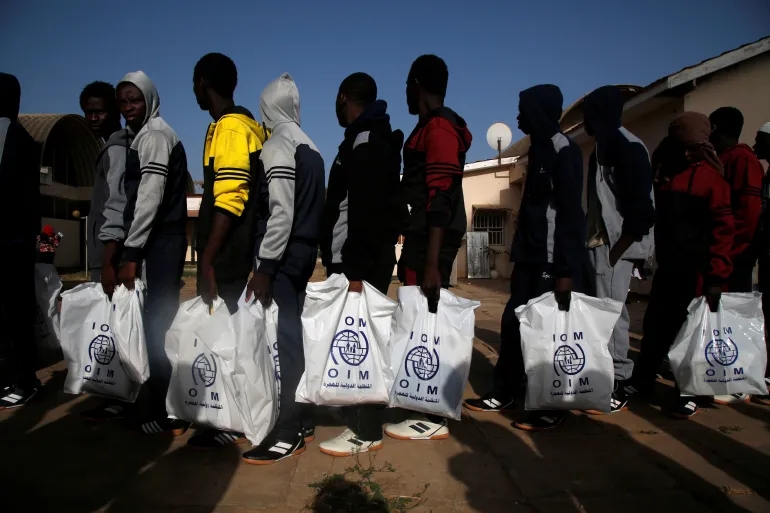Gambiaj.com – (BANJUL, The Gambia) – Between June and August 2024, over 500 Gambians were repatriated from Libya, Morocco, and Tunisia, shedding light on the country’s ongoing migration crisis. Despite these returns, thousands of Gambians, including young people, women, and children, continue to embark on dangerous journeys via irregular routes. Tragically, many of these journeys end in disaster, leaving families in anguish. In 2023, the European Union reported that over 9,000 Gambians, primarily youth, attempted irregular migration through the “backway.”
The growing crisis has sparked concerns about the government’s response. While some blame poor governance, structural economic challenges and social dynamics also play significant roles.
Migration has undeniable economic benefits for The Gambia, largely due to remittances, which account for nearly 20% of the country’s GDP, according to the World Bank.
These funds are lifelines for families and help fuel local economies. However, the reliance on remittances may encourage the migration cycle, as families often push younger members to seek opportunities abroad. This dynamic exacerbates the country’s brain drain and reduces local capacity for sustainable development.
For those deported or whose journeys fail, the aftermath is often grim. Deportees face stigma, emotional trauma, and financial struggles as they reintegrate into society. Families must also deal with financial burdens and social challenges. In 2020, The Gambia ranked sixth among the top ten countries with the highest number of deportees, according to German government data.
By 2021, tensions between The Gambia and the European Union escalated over The Gambia’s reluctance to accept rejected asylum seekers from Germany. At the time, nearly 7,000 Gambians in Germany lacked residence permits, raising concerns over visa restrictions for other Gambians applying to Schengen countries.
Economic hardship is a key driver of irregular migration, but other factors also contribute. Governance challenges, such as corruption, weak institutions, and limited transparency, have eroded public trust. Climate change has also destabilized agriculture, forcing many to seek alternative livelihoods. Additionally, many Gambians lack skills suited for the global job market, leaving them vulnerable to unsafe migration.
In August 2024, The Gambia signed a memorandum of understanding with Spain to address irregular migration to the Canary Islands. Spanish Prime Minister Pedro Sánchez described the initiative as a step toward facilitating “safe, orderly, and regular migration.”
Building on this, The Gambia could expand agreements on circular migration to include industries like healthcare, agriculture, and technology. Vocational training programs could help equip youth with skills for local and international opportunities. Incentives for diaspora members to invest in local businesses could also foster economic development and reduce reliance on remittances.
Despite the challenges of irregular migration, Gambians abroad have made significant contributions to national progress. Their successes, including business ventures and education initiatives, highlight the potential of migration when responsibly managed. Promoting these stories could inspire young people to pursue safer and structured migration pathways.
The Gambia faces a complex migration crisis that requires immediate and long-term strategies to address economic, social, and governance challenges. With effective policies, the country can create opportunities at home and foster safer alternatives for those seeking a better future abroad.










